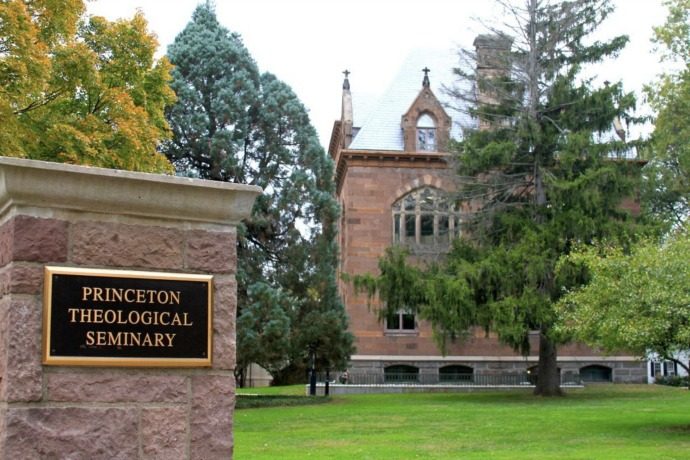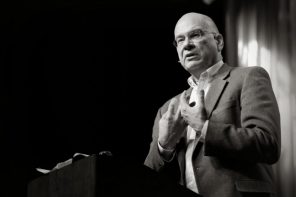It was the invitation that wasn’t. Princeton Theological Seminary offered Timothy Keller its Abraham Kuyper Prize for Excellence in Reformed Theology and Public Witness. Hundreds of seminary students, alumni and faculty signed a petition protesting the award, after which the seminary abruptly rescinded the offer.
The seminary’s invitation to lecture on campus still stands. Keller has—in the words of seminary President Craig Barnes—“graciously agreed to keep the commitment” to deliver the Kuyper Conference’s keynote address, sans the $10,000 prize.
The sticking point, in Barnes’ words, is “Keller’s belief that women and LGBTQ+ persons should not be ordained, [which] conflicts with the stance of the Presbyterian Church (USA).”
But that black-and-white assessment washes over the particularities of the PCUSA’s actual requirements for its ordaining bodies. It also fuels a misunderstanding of theological nuance that is being replicated in media commentators’ reactions to the seminary’s decision.
Media pundits have focused primarily on the headline-grabbing issue of LGBTQ ordination, rather than Keller’s rejection of female ministers, elders and deacons—though that categorical dismissal is what actually stands in greater contrast with PCUSA’s presiding doctrine. Unlike LGBTQ ordination, about which some controversy remains, the ordination of women has the enthusiastic support of nearly every member of the PCUSA. Ordaining bodies within the PCUSA may not categorically bar women from ordained service. In fact, The church’s 1990 Brief Statement of Faith declares that “the Spirit… calls women and men to all ministries of the Church,” elevating the ordination of women to confessional status.
By contrast, when the PCUSA’s General Assembly voted to begin ordaining LGBTQ people several years ago, it spoke of the need to maintain safe spaces for conservative dissenters who believe scripture prevents their presbyteries and sessions from ordaining those in same-sex relationships. As such, it drafted constitutional language on this issue that is permissive rather than mandatory—individual churches or leaders are not required to ordain LGBTQ people.
Keller, for his part, belongs to the conservative Presbyterian Church in America (PCA), which bars women from ordination to any ministry. He has been outspoken in support of his denomination’s views. Keller is also a noted proponent of “complementarian theology,” a conservative interpretation of the New Testament that requires husbands to assume the role of head of the household. He encourages married women to “complement” their men by submitting to their divinely-sanctioned rule.
But these crucial distinctions are all-but-erased by the broad brush used to paint the terms of the controversy in mainstream media. In an op-ed for The Wall Street Journal, Case Thorp castigates the seminary administration for buckling under what Thorp calls “identity theology,” a term he appears to have invented, adapting “identity politics” to the theological realm.
Building on the conservative framing of “identity politics” as the result of small, identity-based groups clinging to and trumpeting their collective uniqueness, Thorp fumes that “identity theology… perpetuates the Enlightenment’s failed promise in which true meaning rests within someone’s understanding of himself.”
“Those who cling to this mode of thinking leave behind a God-centered study for a radical focus on humanity,” Thorp laments.
The concept of “identity theology” sounds suspiciously like that all-purpose complaint beloved of the right wing, “political correctness.” Charges of political correctness function as a useful tool for those who are weary of repeated invitations to rethink old prejudices. “Identity theology” is simply political correctness with a halo.
The seminary’s misstep on the Kuyper Award is unfortunate, but it’s inaccurate to portray President Barnes’ decision to withdraw it as a snub of Keller, or of those who hold similar conservative views on the ordination of women or the role of women in the Christian household. Thorp made such a claim in his op-ed, as did Jonathan Merritt in a recent Religion News Service opinion piece. There is a difference between respectful ecumenical dialogue and endorsing opposing views, which is how many would understand the awarding of a theology prize.
In an article in Christianity Today, Fuller Theological Seminary President Emeritus Richard Mouw—a previous Kuyper Award recipient—reports hearing “expressions of consternation and feelings of betrayal” among his fellow evangelicals, now that PTS has withdrawn the award. Mouw differs from Keller on the ordination of women, but stands with him on the question of same-sex marriage. “Is there a new litmus test?” he wonders.
Mouw’s concern seems overblown since the concern about women’s ordination is by itself sufficient justification for the seminary’s re-thinking of its decision.
The heart of ecumenical discussion is listening to one another, a dialogue the seminary will still foster as Keller visits the campus. Perhaps minds will be changed. Or perhaps not. But the conversation will likely proceed without any mention of identity theology, which is a good thing.





